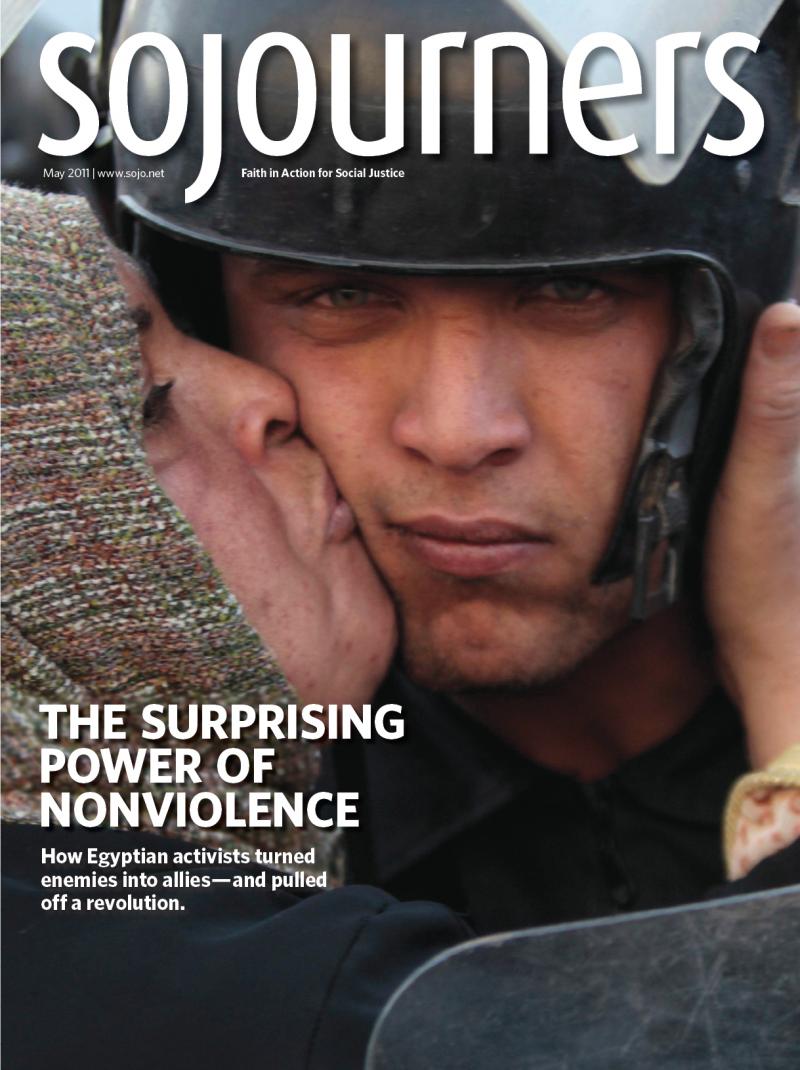
Sojourners Magazine: May 2011
At Sojourners, we have always been advocates of principled nonviolence. (Our founder called it "loving your enemy.") But all too often, conventional wisdom has seen nonviolence as passivity, even in the face of injustice.
The events in Egypt and elsewhere in the region this year were vivid reminders of the power of civil resistance -- and demonstrate once again that nonviolent action is anything but passive or quiescent. That's why Gandhi referred to it as "satyagraha," or truth force. And why the heroes of the civil rights movement are often called freedom fighters. History has shown that justice rarely happens naturally or on its own; it is usually the fruit of long, hard, determined struggle by those directly affected and their allies.
Erica Chenoweth has studied a century of civil resistance, and she has identified elements that make for a successful campaign. Among her most important findings: Nonviolent actions are actually more likely to work than those that use violence. But one essential aspect of such actions is that proper preparation and training take place before people take it to the streets. And that's exactly what happened in the months and years before the Jan. 25 uprising in Egypt. Such training was also key to the success of the U.S. civil rights movement, as Bernard Lafayette explains in our interview this month -- one way we mark the 50th anniversary of the first freedom rides.
Finally, it is with deep appreciation that we say farewell (for now) to biblical scholar Walter Brueggemann, who for the past 18 months has brought his always-provocative wisdom and insight to our Living the Word commentaries -- and helped us see that the deepest roots for social action are firmly planted in God's Word.
Cover Story
Feature
Commentary
Columns
Culture Watch
The sacred tradition of integrating feminist insight into religious texts